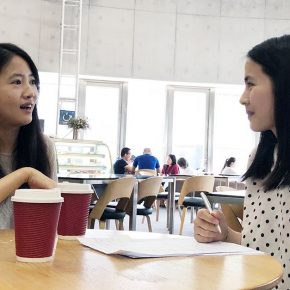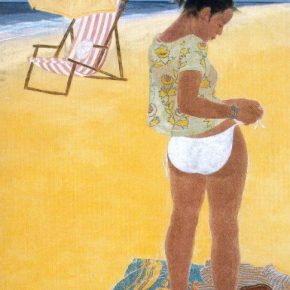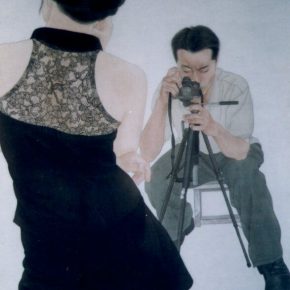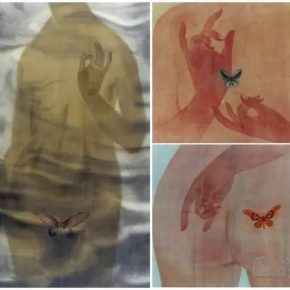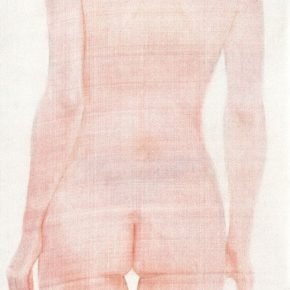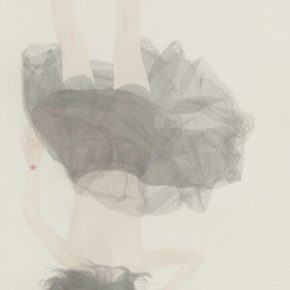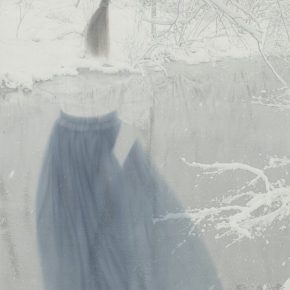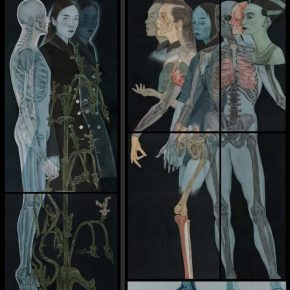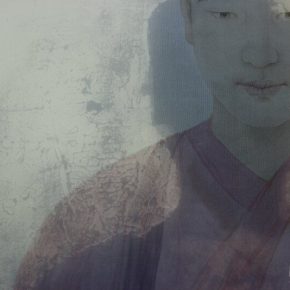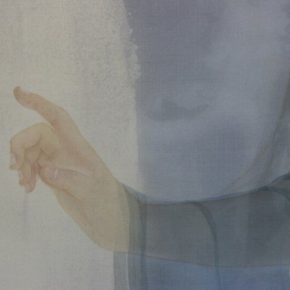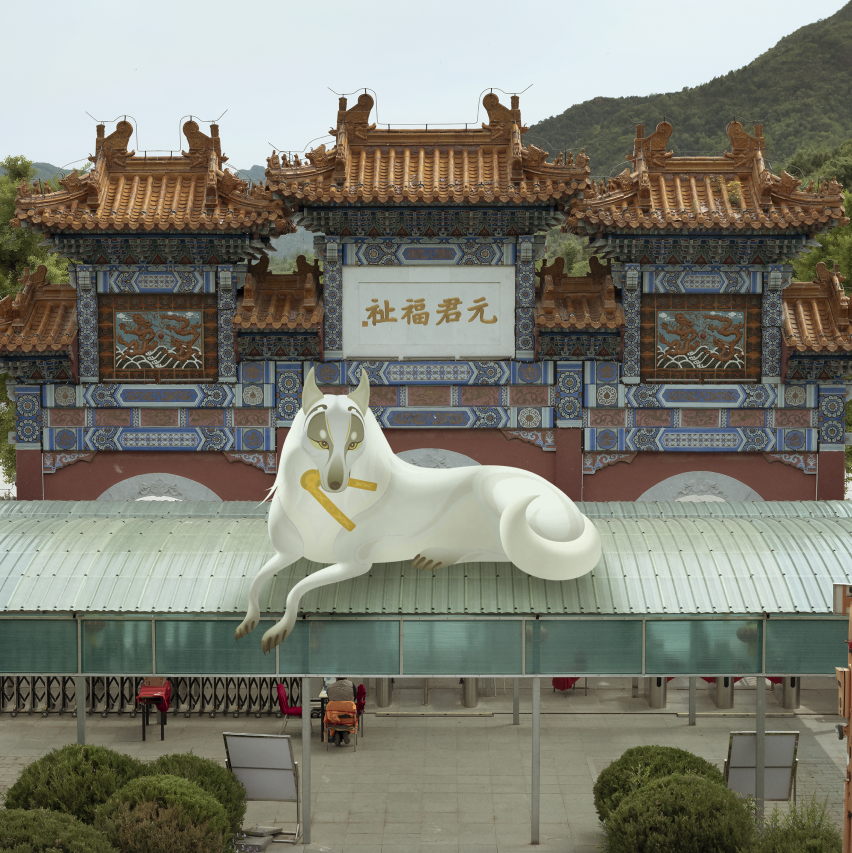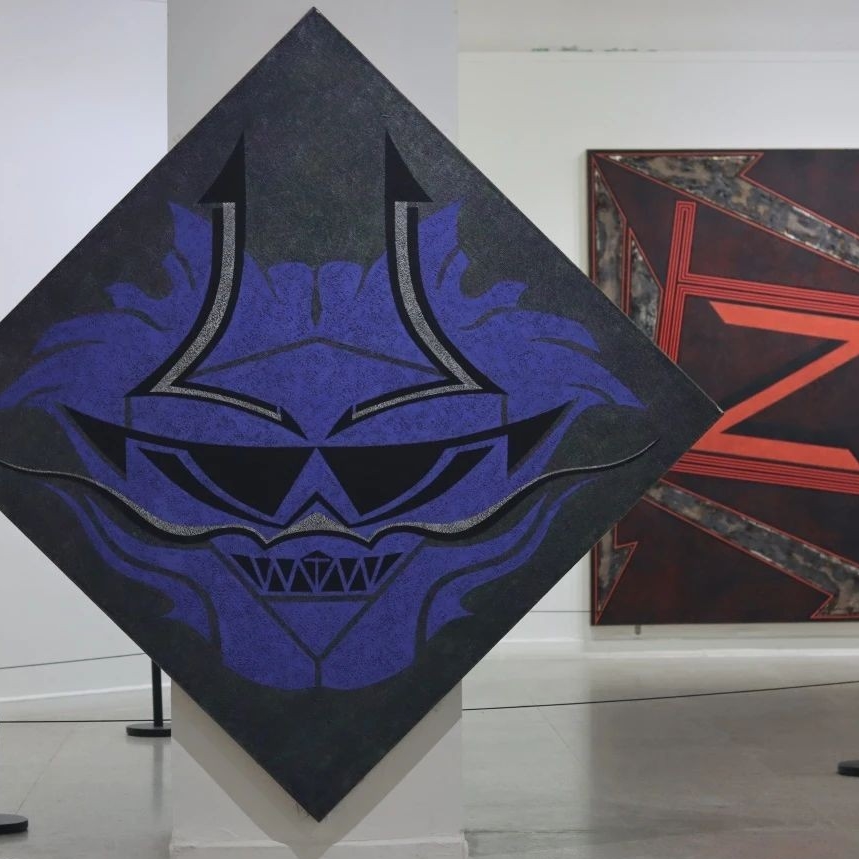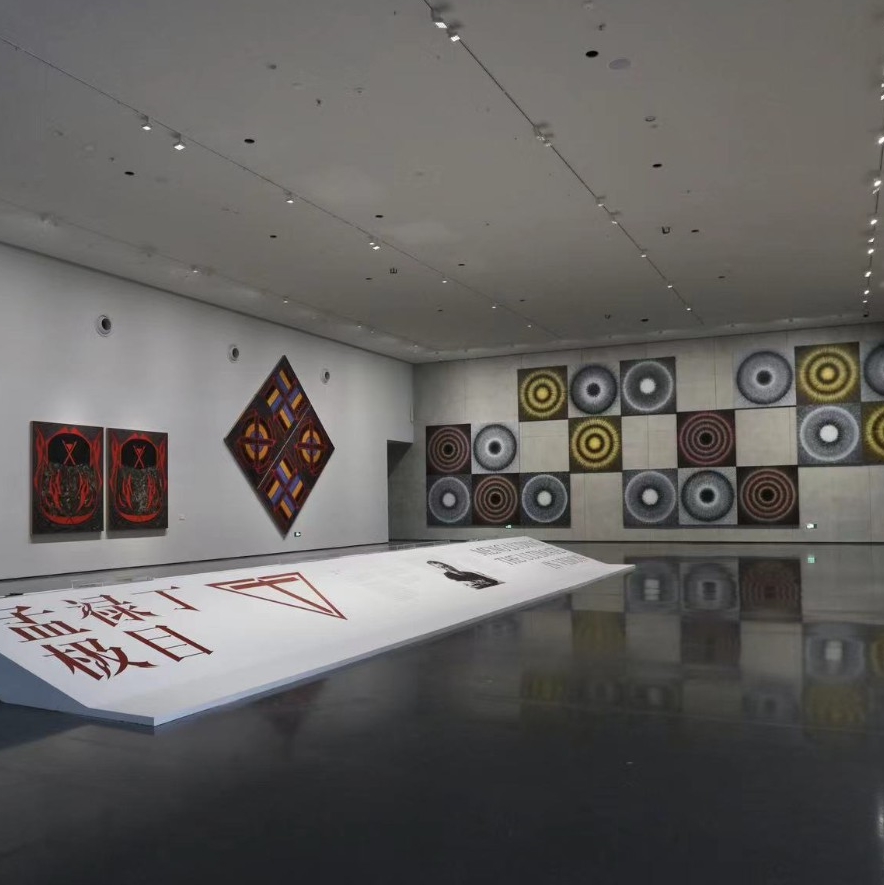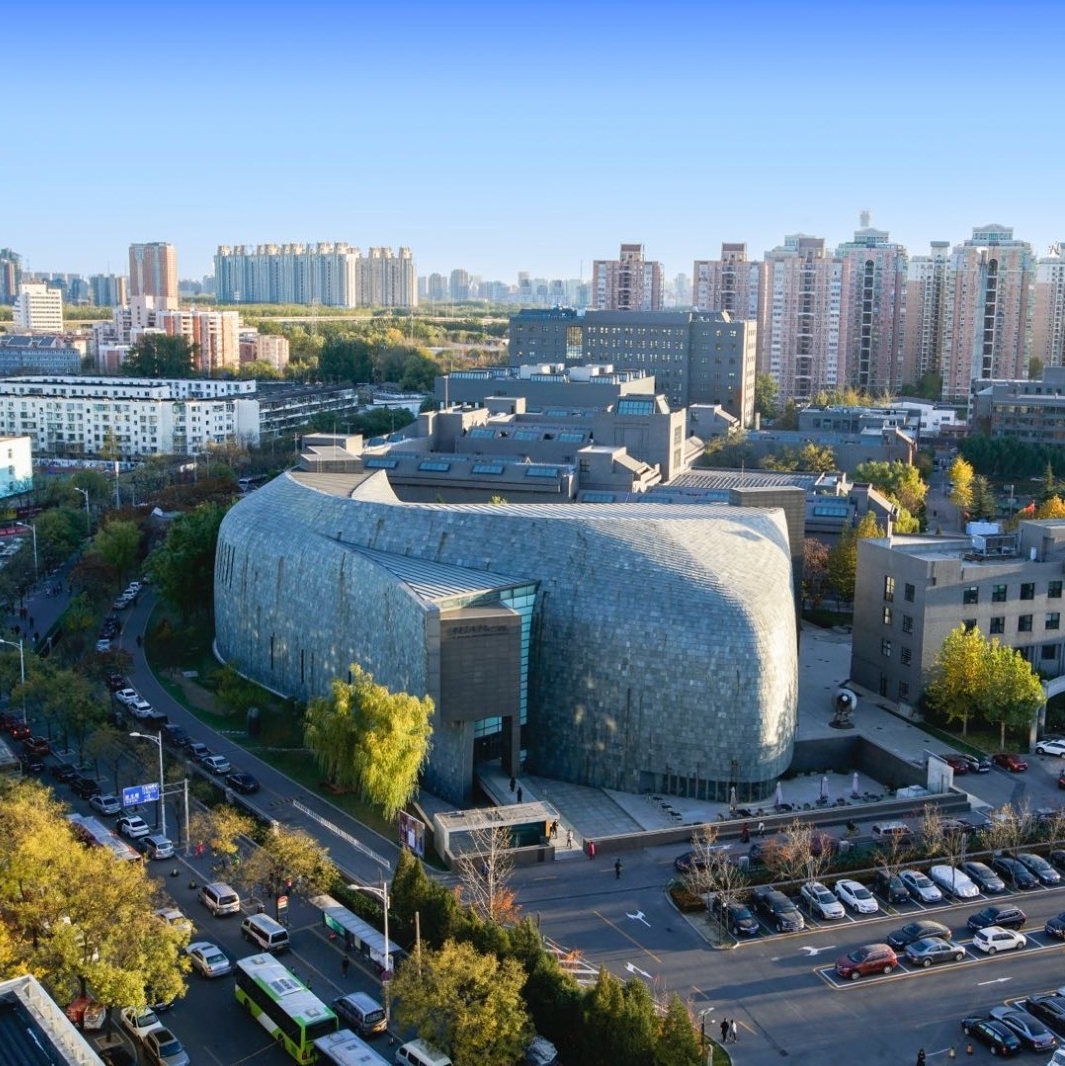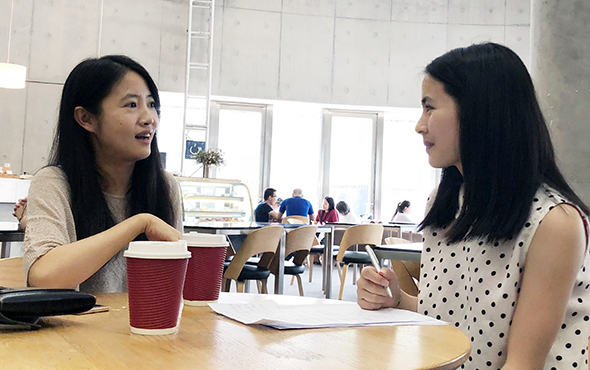
Xu Hualing, who entered the Affiliated High School of the Central Academy of Fine Arts in 1992 and successfully obtained a bachelor's degree from the Chinese Painting Department of the Central Academy of Fine Arts. In 2003, she obtained a master's degree from Hu Bo Studio, the Department of Chinese Painting of the Central Academy of Fine Arts. She is now a successful artist and an excellent supervisor of traditional Chinese painting. On the occasion of this year’s graduation season, looking back at her years of study at the Central Academy of Fine Arts, Xu Hualing believed that her graduation work at the Affiliated High School of the Central Academy of Fine Arts has left a profound impact on her and her postgraduate study at CAFA and the final graduation creation laid a solid foundation for her later creative style.
Interview time: June 8, 2018
Interview venue: Cafe at the CAFA Art Museum
Interviewee: Xu Hualing
Interviewer: Yang Zhonghui
Translated and edited by Sue/CAFA ART INFO
CAFA ART INFO: Hello, Ms. Xu, I would like to talk with you about your graduation. It seems that you have spent quite a long time at CAFA! From the Affiliated High School of the Central Academy of Fine Arts to the undergraduate, postgraduate and doctoral studies at CAFA, you have experienced graduation on many occasions. Can you talk with us about your previous graduations? You might take one or two graduations that have left a deep impression as examples.
Xu: The one that impressed me the most was when I graduated from the Affiliated High School of the Central Academy of Fine Arts. I was studying at the School near Longfu Temple. In my third grade, we were told that we would have a graduation exhibition. However, the students in the middle school were mainly engaged in training in sketching and copying, and we barely had any ideas about creation. The first time I worked on a creation, my own feeling was to make a patchwork. I took lots of pictures and then took a large catalogue of He Jiaying and put it next to mine as a comparison. After painting the first one, I felt it was very unsuccessful. When I went home, I drew a second one and began to find some emotions. I based my painting on the theme of the hair salon that was popular 20 years ago. The size was not large but it took nearly half a year to complete. I remember our graduation exhibition at that time was in an exhibition hall open to the public in the School. I put the two paintings I had finished before and after at the exhibition. Later, I heard about it elsewhere, that a teacher of the Central Academy of Fine Arts, Hu Mingzhe, came to see this graduation exhibition. She was very satisfied with my creation during my vacation, which was a big encouragement for me at that time. Thus I found pleasure in my creation and I began to retain the habit of creation. After I entered undergraduate study at the Central Academy of Fine Arts, I would paint both in class and while on vacation.
CAFA ART INFO: Is the current student creation different from your creation status at that time? What is the situation of the students you have taught?
Xu: The current status of students are similar to ours with basic skills. The mastery of techniques is quite similar, but some students are better than ours with their consciousness. In this active era, there is more integration among categories of painting. Students can reach more things, and they will take more initiative in absorbing some things, so there are more excellent students. In this year’s session of Gongbi Figure Painting in the Undergraduate Graduation Exhibition, several students showed their ability to think deeply and deal with complex scenes.
Some of the students I have taught are not very strong in modeling but they have a lot of ideas. The basic skills are not unique but the lack of basic skills can be made up in the form of pictures, the use of various media and a deep understanding of philosophy. Students who realize that their ability in plastic arts is weak have time to make up before the fourth year of undergraduate degree, but basically they have already passed that stage after they entered the postgraduate period. The only thing that occurs to them is that they should create and study something.
CAFA ART INFO: Is there any difference between this year’s graduation exhibition and your previous graduation exhibitions?
Xu: There is a big difference, when I graduated with a master’s degree, there were only basic information such as the name of the work, the instructor and the author on the label of the work, but now the students write their own WeChat QR code and mobile phone number on the label. We needed to ask each other to find artists’ contact information. We did not have any art market and there were not so many people coming to visit the exhibition. Relatively speaking, everyone in the past was very simple. I felt that the concept of our graduation exhibition at that time was a summary of one’s study and life. The current graduation exhibition is the best display platform for students. This exhibition may have a greater impact on students than any other exhibition. For them, this is their debut onto the stage within society.
CAFA ART INFO: Did your graduation exhibition in the past exert any influence on you? Can you talk to us about some important occasions on your artistic path that affect you? Perhaps this will provide some reference for current students.
Xu: I graduated with my master’s degree in 2003, but the graduation exhibition was cancelled because of SARS. In the year after my graduation, the Central Academy of Fine Arts held the first exhibition of “Outstanding Works by Graduates from CAFA”. Fortunately, my work was selected for participation. The exhibition invited artists such as Ai Weiwei, Fang Lijun and some artists and professors from CAFA to serve as judges. At that time, my graduation work “Fragrance” was awarded a prize. I was very happy because I felt affirmation from the teachers. Later, this series of works participated in the “The First Exhibition of N12” that I co-sponsored with 11 friends. At that time, we raised finance, printed the book and found a venue to present such an exhibition. Prior to this, the graduates of the Central Academy of Fine Arts did not present exhibitions for many years as they questioned why would they present if no one visited them? We did the exhibition with the help from the exhibition hall of the previous Central Academy of Fine Arts as they gave us preferential conditions. The exhibition appeared quite sensational and we caught an opportunity as the art market was about to take off. Each member in the entire N12 were very lucky. I think that our group really gathered all the factors together and then we appeared in the form of a group with each of us having different characteristics. So at that time, when I graduated with a master’s degree, my work naturally entered the art market.
An important time period that I experienced was when I was enrolled in the Affiliated High School of the Central Academy of Fine Arts. The graduation work in the middle school made me realize that creation was very interesting. Secondly, I was admitted to graduate school after I finished my undergraduate study. If I didn’t go to graduate school at that time, if I drifted in Beijing, I might not have been so determined to draw in a down to earth way. After I was admitted to graduate school, I was very relaxed. I painted for another three years, during which, I experienced the process of qualitative changes in my work.
CAFA ART INFO: The art market after graduation is not optimistic.
Xu: Actually, the opportunities for graduates are still all right. I just used live pictures of the graduation exhibition to send a WeChat message. Gallery owners, art dealers and collectors are very interested in this exhibition. Although it is said that this art market is not as good as it was in previous years, it has been shrinking, the attention paid to the fresh blood of graduates from the Central Academy of Fine Arts has continued to rise. The flow of visitors to the exhibition can actually highlight the problem. Of course, most of them are not worthwhile visitors. However, the practitioners in the art market are actually concerned with the graduates from the Central Academy of Fine Arts and they do not lack collectors. As long as you are good enough, as long as you are excellent, you will definitely not be neglected. Ren Lihan, the graduate student recruited this year, was the first student of my class after I started to work at the Central Academy of Fine Arts. He won the first prize at the graduation exhibition and he is now a well-known post-90s artist. Wu Yishan, a graduate from the Chinese Painting School in 2018, has a strong creative talent with her graduation work “Self and Ego: Prosperity”, and she has great potential in the future.
CAFA ART INFO: You are now a teacher of the Central Academy of Fine Arts, and also a well-known artist in this field. From your own experience, what advice or guidance do you have for career planning of graduates? You might talk about the continuity between your current creative style and your secondary, undergraduate, master's and doctoral graduation works.
Xu: I have different graduations at different stages. I started painting my first creation from the affiliated school, and now I have tossed in a lot of styles in the process. I had a strong sense of being a student in the period of my affiliated school, basically it was a reproduction of a scene. When I was admitted to the CAFA, I was particularly obsessed with the technique of rock color. At that time, I had a kind of resistance to traditional Chinese painting in my mind. I felt that the color was too simple and the expression of color was not good enough. Therefore, my graduation works were all painted on canvas. There is no relationship between those paintings and my current paintings. In the later stages, I always wanted to use rock color to express the effect of a water-like flow. Later, I found that the granular one could not achieve that effect. So when I was a graduate student, my pursuit of color seemed to be meaningless. At the beginning, there were still some colors. Later, it became more singular, including all the space was simplified, and the props of the characters in the painting were almost gone. My graduation work at postgraduate period almost laid the path for my later painting style, and my image became a visual label.
Most of the students were admitted to the Central Academy of Fine Arts who wanted to paint, but art does not mean that you will be rewarded if you work hard. If you want to continue to paint after you graduate, you need talent and a lot of effort, as well as the right timing and other factors. Painting has some accidental elements, I work on creations to find my own direction. Sometimes 50% of the things are like luck while over two or three years, some artists suddenly find their own style which is very suitable for themselves, just like winning a prize at a lottery. However, some people may be rushing in all directions, and they are constantly exploring. One who is also very hardworking and also very talented may not find a point suitable for his own expression. During such research, maybe seven or eight years have passed, but we have not just ideals, we also have life, and we have to confront a lot of the pressure of life. I feel that after graduation, it would be better to give myself a time limit. I will concentrate on painting within this time limit. Of course, the premise is that your family will support you unconditionally. You must have confidence in yourself. You can’t just abandon painting if you need to make any improvements, give yourself a time limit.


